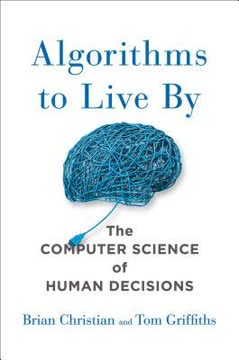Key Takeaways
1. Common sense interventions often fail; scientific testing is crucial
Even better, we have powerful techniques at our disposal based on the story-editing approach.
Flawed interventions persist. Many popular programs, like Critical Incident Stress Debriefing (CISD) for trauma victims and D.A.R.E. for drug prevention, seem logical but actually prove ineffective or even harmful when scientifically tested. These "blistering" or "bloodletting" interventions highlight the danger of relying on common sense alone.
Scientific rigor is essential. Properly designed experiments with random assignment to treatment and control groups are necessary to determine an intervention's true impact. Without such testing, well-intentioned efforts can waste resources or cause unintended harm. Policy makers and program developers should prioritize evidence-based approaches and be willing to abandon or modify interventions that don't withstand scientific scrutiny.
2. Story editing: Redirecting personal narratives for lasting change
Small changes in interpretations can have self-sustaining effects, leading to long-lasting changes in behavior.
Narratives shape behavior. People's interpretations of themselves and their world profoundly influence their actions. By subtly redirecting these personal narratives, it's possible to create significant, enduring behavioral changes.
Effective story editing techniques:
- Writing exercises to process traumatic events
- Prompting new explanations for behavior
- Labeling actions to reinforce positive self-views
- Affirming core values to reduce threat and stress
- Reframing abilities as malleable rather than fixed
These approaches work by interrupting negative cycles of thought and behavior, fostering more adaptive interpretations that become self-reinforcing over time.
3. Happiness stems from meaning, hope, and purpose
We need to find meaning in our lives—to acquire what Aristotle called eudaimonia, a life well-lived with a sense of purpose and virtue.
Key components of well-being:
- Coherent core narratives answering life's big questions
- Optimistic outlook and effective coping strategies
- Sense of autonomy and progress toward meaningful goals
Practical happiness-boosting strategies:
- Writing about "best possible selves" to increase optimism
- Reframing negative events to find meaning and closure
- Engaging in volunteer work to foster purpose and connection
- Maintaining close social relationships
- Focusing on personal growth rather than fixed traits
While genetics and circumstances play a role, redirecting personal narratives can significantly enhance happiness and life satisfaction.
4. Parenting: Shape children's narratives with minimal intervention
As a parent, be mindful not only of what your children do, but of the narratives they are developing about themselves, their relationships, and the world at large.
Minimal sufficiency principle. Use the smallest rewards or punishments necessary to shape behavior. Overly controlling parenting or excessive incentives can undermine children's intrinsic motivation and prevent them from internalizing desired values.
Effective parenting strategies:
- Provide appropriate labels for children's behavior
- Foster secure attachment through consistent, responsive care
- Encourage a growth mindset about abilities
- Support autonomy while offering guidance
- Model and facilitate volunteer work and community engagement
By shaping children's narratives and interpretations from an early age, parents can profoundly influence their long-term development and well-being.
5. Volunteer work prevents risky teen behaviors
Engaging in volunteer work can lead to a beneficial change in how they view themselves, fostering the sense that they are valuable members of the community who have a stake in the future, thereby reducing the likelihood that they engage in risky behaviors, including unprotected sex.
Community service transforms self-image. Programs like Teen Outreach and Reach for Health, which incorporate volunteer work, significantly reduce teen pregnancy, substance abuse, and violence. These interventions work by changing how teens view themselves and their place in society.
Benefits of youth volunteering:
- Increases sense of engagement and belonging
- Fosters positive relationships with adults and peers
- Provides opportunities to develop skills and confidence
- Redirects narratives from alienation to community involvement
Encouraging teens to volunteer in areas aligned with their interests can be a powerful way for parents and schools to promote positive development and reduce risky behaviors.
6. Peer influence and social norms powerfully shape behavior
People are highly sensitive to social norms (information about what other people are doing and what they approve of), and subtle indicators of these norms can have dramatic effects on people's behavior.
Perceived norms drive action. People often overestimate how much their peers engage in or approve of certain behaviors, leading them to adjust their own behavior to match these inflated perceptions. This effect is particularly strong among adolescents and young adults.
Effective norm-based interventions:
- Correct misperceptions about peer behavior (e.g., alcohol use)
- Highlight positive norms and role models
- Use injunctive norms (what others approve of) in addition to descriptive norms
- Frame desired behaviors as typical of admired groups
- Leverage social media and entertainment to portray positive norms
By strategically communicating accurate social norms, it's possible to reduce harmful behaviors and encourage positive ones across various domains.
7. Stereotype threat undermines performance; affirmation counters it
Stereotype threat is a psychological state that people experience when they feel they are at risk of confirming a negative stereotype about a group to which they belong.
Mechanism of stereotype threat:
- Awareness of negative stereotype
- Anxiety about confirming the stereotype
- Mental resources diverted to worry and self-monitoring
- Decreased task performance, confirming the stereotype
Countering stereotype threat:
- Reframe tasks to avoid triggering stereotypes
- Teach about stereotype threat to reduce its power
- Affirm individuals' values and strengths in other domains
- Create identity-safe environments
- Promote growth mindsets about abilities
By understanding and addressing stereotype threat, educators and leaders can help close achievement gaps and create more equitable environments for all.
8. Small, targeted interventions can yield significant, lasting results
We have seen myriad story-editing interventions that used these principles to address a wide range of personal and social issues.
Power of targeted approaches. Well-designed, theory-based interventions can create lasting change by redirecting personal narratives at critical moments. These interventions are often surprisingly brief and simple, yet yield outsized results.
Examples of effective small-scale interventions:
- Writing about values to reduce racial achievement gaps
- Teaching growth mindsets to improve academic performance
- Prompting new friendship formation to reduce prejudice
- Reframing social belonging to increase college retention
The success of these interventions demonstrates the potential for relatively low-cost, scalable solutions to complex social problems. However, it's crucial to rigorously test and refine interventions, as even small differences in implementation can significantly impact outcomes.
Last updated:
FAQ
What's Redirect: The Surprising New Science of Psychological Change about?
- Focus on Narratives: The book explores how personal narratives shape behaviors and experiences, emphasizing the potential for positive change through altering these narratives.
- Story-Editing Approach: It introduces "story editing," a method to help individuals reinterpret their experiences for improved well-being.
- Applications and Efficacy: Wilson discusses interventions for mental health, prejudice reduction, and educational achievement, evaluating their scientific support.
Why should I read Redirect: The Surprising New Science of Psychological Change?
- Evidence-Based Insights: The book is grounded in rigorous research, offering evidence-based insights into psychological change.
- Practical Applications: Readers can apply story-editing techniques to personal development, parenting, and education.
- Understanding Behavior: It provides a deeper understanding of psychological mechanisms driving behavior, valuable for those interested in psychology and social change.
What are the key takeaways of Redirect: The Surprising New Science of Psychological Change?
- Power of Narratives: Personal narratives significantly influence behavior and emotional well-being; changing them can improve life outcomes.
- Effectiveness of Interventions: Emphasizes the importance of scientifically evaluating psychological interventions, highlighting successful programs.
- Stereotype Threat: Discusses how addressing stereotype threat through story-editing can close educational achievement gaps.
What is the story-editing approach in Redirect?
- Definition: Story-editing involves changing personal narratives to foster positive behavioral and emotional changes.
- Practical Techniques: Includes writing exercises that encourage reflection on values and experiences to affirm self-worth.
- Long-Term Benefits: These interventions can have lasting effects on academic performance and overall well-being.
How does Redirect address the issue of teenage pregnancy?
- Community Engagement: Highlights programs like the Teen Outreach Program, combining community service with teen development discussions.
- Narrative Change: Emphasizes changing teens' narratives from alienation to belonging and purpose through volunteer work.
- Evidence of Effectiveness: Studies show reduced risky behaviors, including unprotected sex, among teens involved in community service.
What is the Pennebaker writing exercise mentioned in Redirect?
- Self-Reflection Through Writing: Involves writing about personal traumas or significant experiences for fifteen minutes over four days.
- Benefits: Leads to improvements in mental health, immune functioning, and life satisfaction.
- Mechanism of Change: Helps individuals make sense of experiences, allowing positive reframing and reinterpretation.
How does stereotype threat affect academic performance according to Redirect?
- Definition: Stereotype threat occurs when individuals fear confirming negative stereotypes about their group, leading to anxiety and decreased performance.
- Impact on Tests: Performance suffers when students are reminded of negative stereotypes before tests.
- Mitigation Strategies: Interventions like reframing tests as "puzzles" can reduce anxiety and improve outcomes.
What are some examples of successful interventions discussed in Redirect?
- Big Brothers Big Sisters: Mentoring program improving academic performance and social skills among at-risk youth.
- Nurse-Family Partnership: Supports disadvantaged mothers, leading to improved health and developmental outcomes for children.
- Stereotype Threat Interventions: Writing exercises that help students affirm values, improving performance by reducing stereotype-related anxiety.
What are the negative effects of scared-straight programs discussed in Redirect?
- Counterproductive Outcomes: Research shows these programs can increase criminal behavior rather than deter it.
- External vs. Internal Motivation: They provide external motivations that undermine internal motivations to avoid crime.
- Evidence from Studies: Participants in scared-straight programs are more likely to commit crimes compared to control groups.
How can parents apply the concepts from Redirect?
- Monitor Narratives: Be aware of children's self-narratives and encourage positive self-talk to build resilience.
- Encourage Volunteer Work: Community service fosters purpose and aligns with the do-good, be-good principle.
- Create Identity-Safe Environments: Ensure children feel safe and valued, reducing stereotype threat in educational settings.
What role does the media play in shaping narratives according to Redirect?
- Influence of Media: Media impacts self-perception and group perceptions, with positive portrayals counteracting negative stereotypes.
- Role Models: Media can showcase diverse role models, inspiring individuals and reducing stereotype threat.
- Caution Against Negativity: Negative portrayals can reinforce harmful narratives; mindful media consumption is crucial.
What are the best quotes from Redirect and what do they mean?
- Subconscious Stereotype Threat: "People are not always aware that they are thinking about their group membership," highlights the hidden impact of stereotypes.
- Power of Small Changes: "Small changes in interpretations can have self-sustaining effects," emphasizes the potential of story-editing interventions.
- Identity Shaping Actions: "We are what we pretend to be," reflects how actions and behaviors shape identities and narratives.
Review Summary
Redirect receives mixed reviews, with praise for its focus on evidence-based interventions and story editing techniques. Readers appreciate Wilson's debunking of ineffective social programs and emphasis on scientific testing. Some find the book repetitive and dry, while others value its insights into social psychology. The book's exploration of personal narratives and their impact on behavior is considered thought-provoking. However, some readers expected more practical applications and found the content less accessible than anticipated. Overall, it's recommended for those interested in psychology and social issues.
Similar Books








Download PDF
Download EPUB
.epub digital book format is ideal for reading ebooks on phones, tablets, and e-readers.




